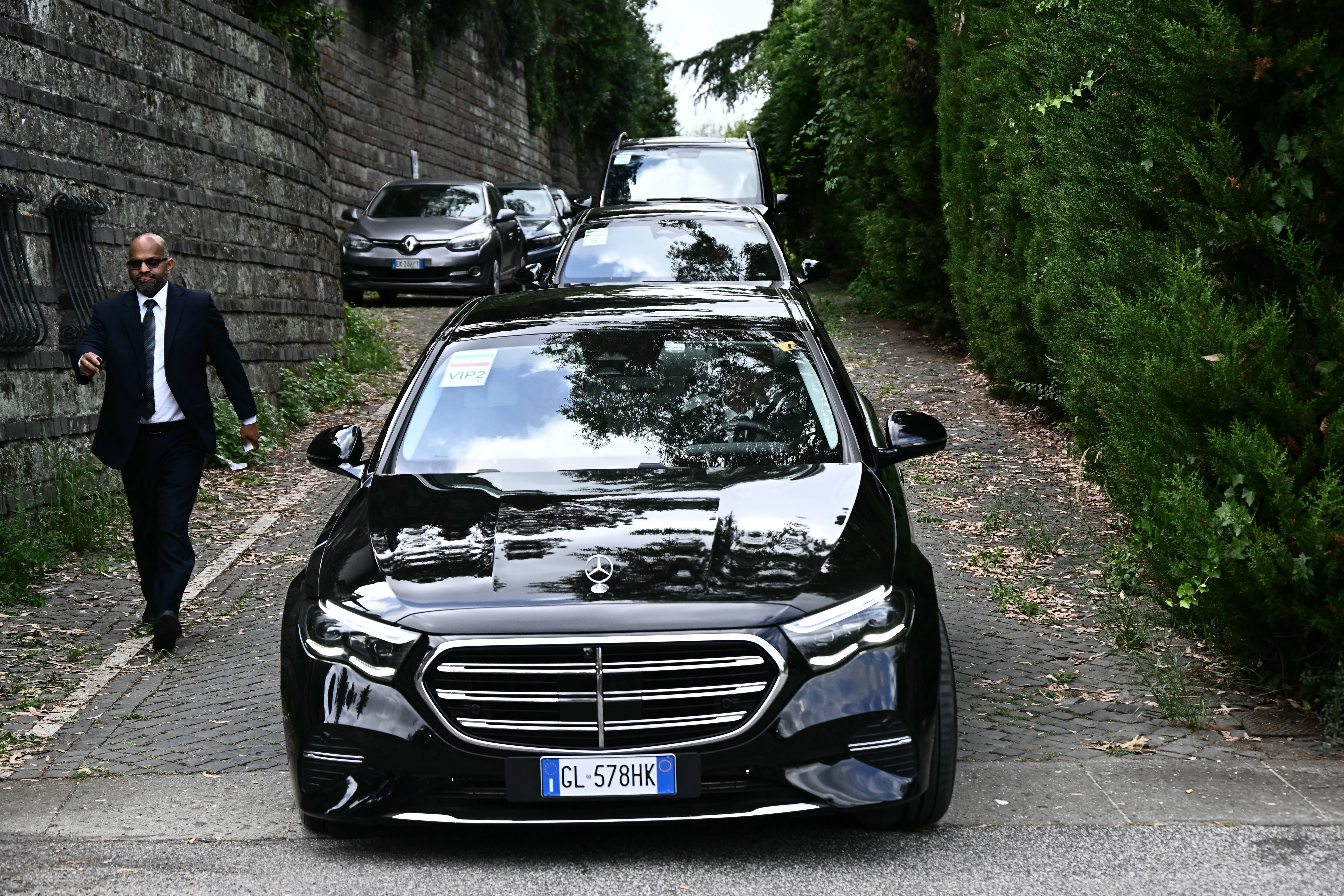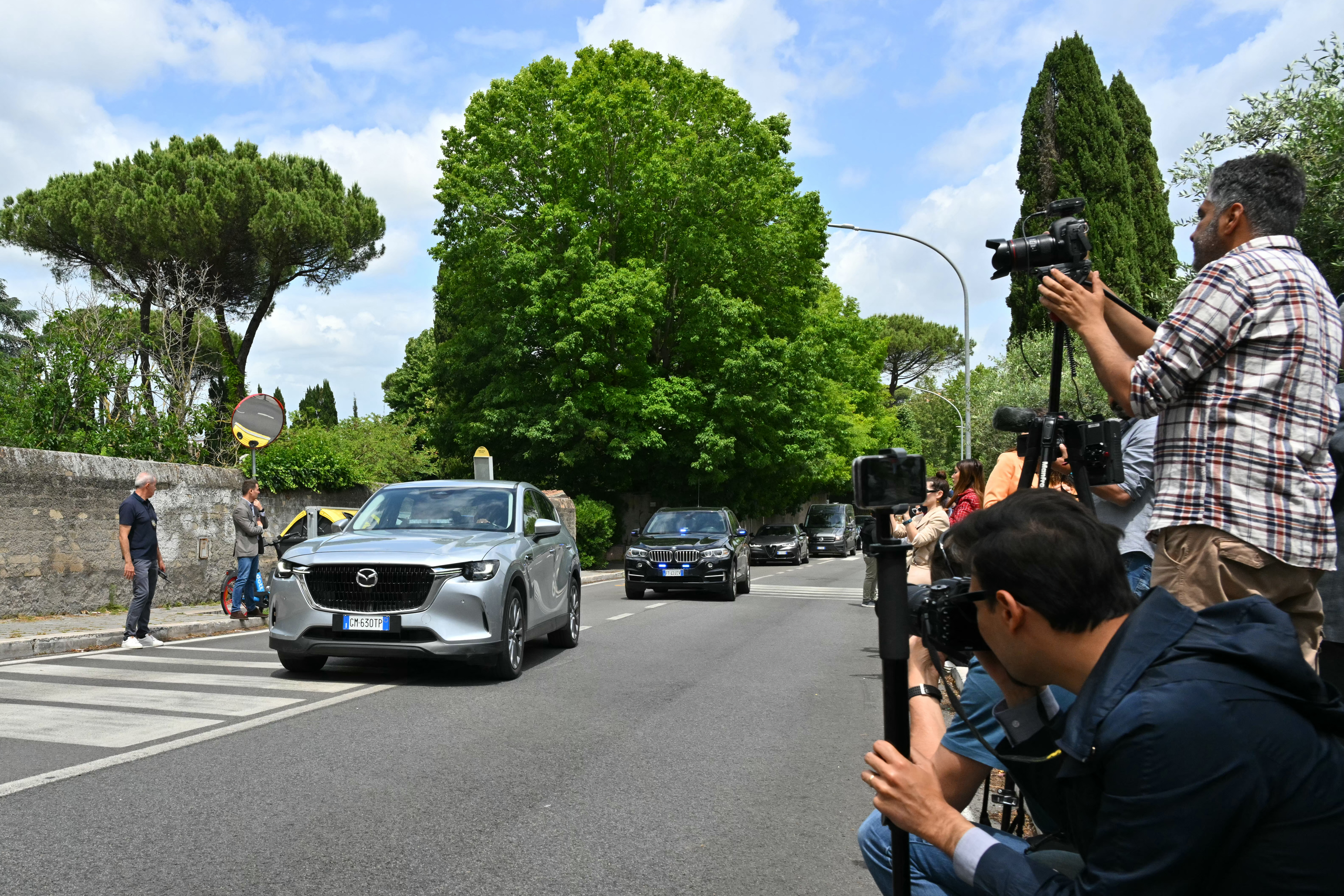
TEHERAN/ROME - The fifth round of indirect talks between Iran and the United States concluded Friday in Rome with "some but not conclusive progress," said Omani Foreign Minister Sayyid Badr bin Hamad bin Hamood Albusaidi.
"We hope to clarify the remaining issues in the coming days, to allow us to proceed towards the common goal of reaching a sustainable and honorable agreement," Albusaidi, also the mediator in the talks, wrote on social platform X.
The latest round of talks took place amid growing differences between the two sides over Iran's nuclear program, as the fourth meeting in the Omani capital of Muscat ended with a public spat over Teheran's uranium enrichment.
Where do both sides stand?
The two sides "have completed one of the most professional rounds of negotiations," Iranian Foreign Minister Abbas Araghchi told Iran's state-run IRIB news after the meeting, while cautioning that more time is needed given the complexity of the negotiations.
"I am hopeful that in the next one or two rounds -- especially given the better understanding of the Islamic Republic's positions -- we can reach solutions that allow the talks to progress," he said, noting that "We are not there yet, but we are not discouraged either."
ALSO READ: Iranian foreign minister says 5th round of Iran-US talks 'one of most professional'
Meanwhile, a senior US administration official described the talks as "constructive," acknowledging that "there is still work to be done." The official noted that the meeting lasted over two hours, during which the two sides "made further progress" and agreed to meet in the near future.
The talks, which began in April, mark the highest-level contact between the two sides since the United States withdrew from the 2015 nuclear deal during President Donald Trump's first term.

The deal, officially known as the Joint Comprehensive Plan of Action, was a landmark agreement aimed at curbing Iran's nuclear program in exchange for sanctions relief.
As Trump unilaterally withdrew from the deal in 2018 and re-imposed sanctions on Iran, the accord collapsed. Since returning to the office, Trump has revived his "maximum pressure" campaign, backing talks with Iran but taking a harder line against any uranium enrichment.
Is an agreement close?
Ahead of Friday's talks, two Iranian sources told CNN that an agreement seems "unlikely," as Teheran sees US demands to ban uranium enrichment as a deal breaker that could "cause the nuclear negotiations to collapse," adding that Tehran is increasingly skeptical about the United States' "sincerity in talks."
US Special Envoy to the Middle East Steve Witkoff, who left the Rome talks "due to his flight schedule," told reporters on Sunday that the United States "cannot allow even 1 percent of an enrichment capability" for Iran, significantly raising the stakes in the negotiations.
"The media statements and negotiating behavior of the United States have widely disappointed policy-making circles in Teheran," the sources told CNN. From the perspective of decision-makers in Teheran, "it is a sign that the United States is fundamentally not seeking an agreement and is using the negotiations as a tool to intensify pressure," they said.
READ MORE: US warned against making 'nonsensical' remarks on Iran's uranium enrichment
According to the sources, some Iranian officials initially believed that Washington was aiming for a "win-win" compromise, but a growing consensus now holds that the Trump administration is driving the negotiations toward a deadlock.
Araghchi said Thursday that "fundamental differences" remained with the United States, but added that Teheran is open to enhanced monitoring by international inspectors.
"We will not have an agreement" if the United States wants to prevent Iran from enriching uranium, he said.


